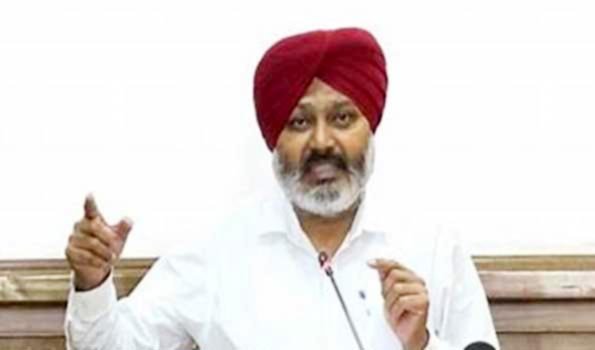New Delhi, Feb 14 (UNI) The Supreme Court on Tuesday refused to stay the first meeting to select the new Election Commissioner, expected to be chaired by Prime Minister Narender Modi this week, saying that ‘a law cannot be suspended through an interim order.’
A Division bench of Justice Sanjiv Khanna and Justice Dipankar Datta refused to stay the first meeting under the Chief Election Commissioner and Other Election Commissioners (Appointment, Conditions of Service and Term of Office) Act, 2023 to select a new election commissioner (EC), saying the operation of a law cannot be suspended through an interim order.
The Supreme Court bench was hearing a petition filed by an NGO Association for Democratic Reforms (ADR), which questioned the exclusion of the Chief Justice of India (CJI) in the selection committee of the EC and urged the court to declare the 2023 law as ‘unconstitutional’ for allegedly failing to preserve free and fair elections – a part of the basic structure of the Constitution.
Senior advocate Prasahant Bhushan who appeared for the NGO sought an interim order from the bench, stressing that the present Election Commissioner Anup Chandra Pandey will retire on Wednesday, and his successor is going to be picked under the new law any time this week.
“They will pick up someone this week. Lok Sabha election was approaching and that is why we are pressing for an interim order,” Bhushan urged. But the bench refused to grant the interim relief saying “we cannot grant you interim relief in a matter like this… We also know our parameters. When an interim order can be passed involving a legislation and when it cannot.” Justice Sanjiv Khanna said.
Bhushan tried to convince the bench saying that his plea would be rendered infructuous if the court were not to intervene in the upcoming selection process.
Justice Khanna said, “Mr Bhushan, constitutional validity matters are never rendered infructuous, we will hear it with the other petition that is pending before us (Jaya Thakur’s).”
The bench said “We will have to examine this in terms of our power of judicial review,” and the bench issued notice to the Union government and agreed to examine the matter in April when a similar petition filed by Congress leader Jaya Thakur is scheduled to come up.
Congress leader Jaya Thakur had on January 12 filed a petition like the ADR’s plea questioning the exclusion of the Chief Justice of India (CJI) in the selection committee and urged the court to declare the 2023 law as unconstitutional for allegedly failing to preserve free and fair elections – a part of the basic structure of the Constitution.
On that day too, though the bench had issued a notice on Thakur’s petition, but had refused to stay the operation of the new law even as it agreed to examine its validity later.
Another petitioner Gopal Singh, whose plea was also listed with Thakur’s petition on January 12, has also sought to implement an “independent and transparent system of selection” by constituting a neutral and independent selection committee for appointment of the CEC and ECs.
On December 28, President Droupadi Murmu, gave her assent on the bill that seeks to put in place a new mechanism for the appointment of CEC and ECs. The new law has provisions to set up a search committee chaired by the Union Law Minister and two other persons not below the rank of secretary, to prepare a panel of five persons for consideration by the selection committee for appointment as CEC or ECs. It provides for a selection committee, chaired by the Prime Minister, leader of the Opposition, and a Union minister, to make recommendations to the President for appointment of CEC and other ECs.











